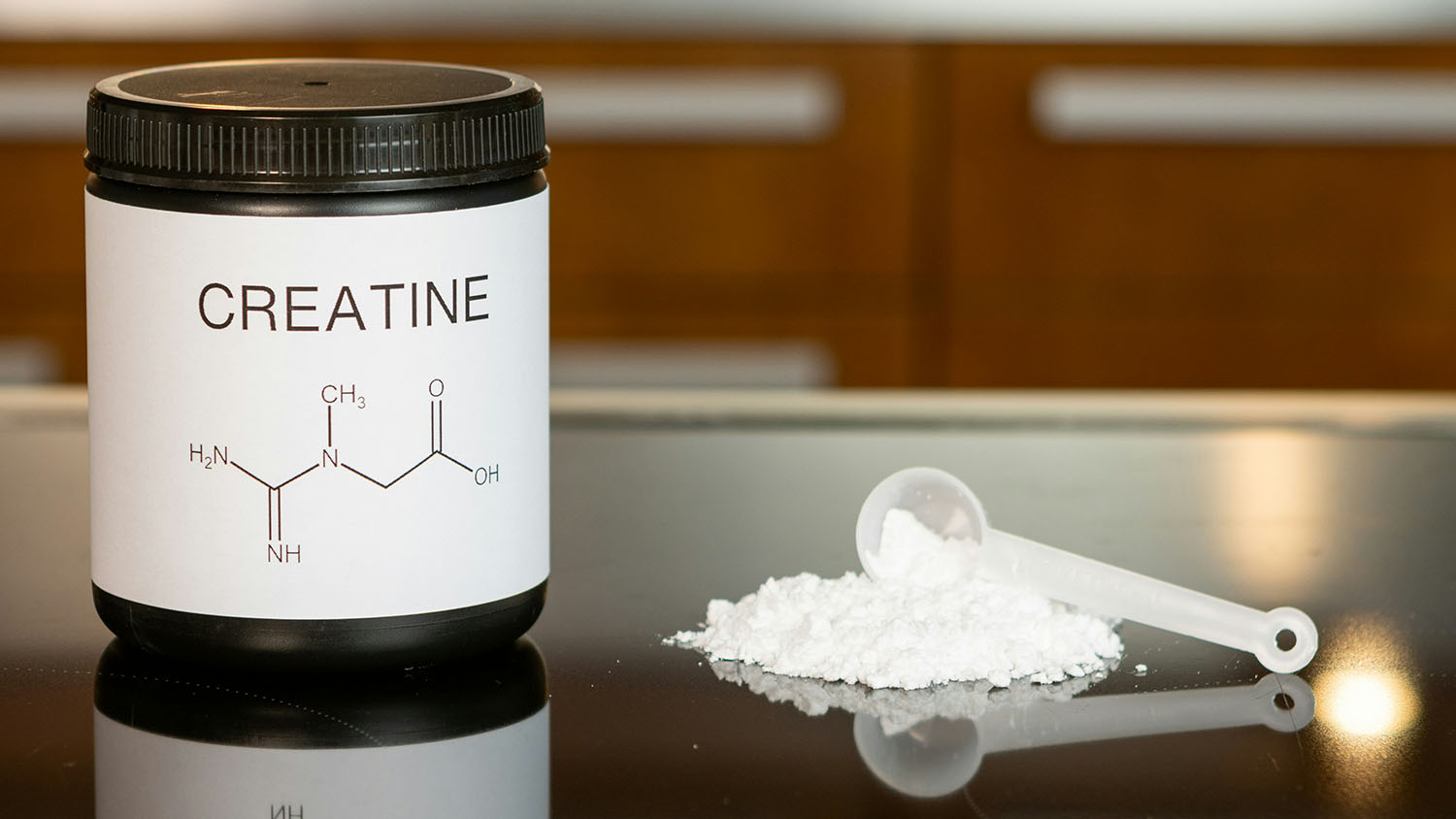What Is Creatine And Should You Take It? A Complete Guide

Table of Contents
What is Creatine? Understanding its Composition and Function
Creatine is a naturally occurring compound primarily found in muscle tissue. It plays a crucial role in energy production within muscles, specifically in the resynthesis of adenosine triphosphate (ATP), the primary energy source for muscle contractions. Understanding creatine's function is key to understanding its benefits. Different types of creatine supplements exist, with creatine monohydrate being the most researched and widely available. Other forms include creatine HCL and creatine ethyl ester, though their effectiveness compared to creatine monohydrate is still under investigation.
- Key Facts about Creatine:
- It's produced naturally in the liver, kidneys, and pancreas.
- It's stored in muscles as phosphocreatine.
- It helps replenish ATP during high-intensity exercise.
- Creatine monohydrate is the most studied and effective form.
Benefits of Creatine: Boosting Strength, Power, and Performance
Numerous studies have demonstrated the significant benefits of creatine supplementation. It's consistently shown to increase strength, power output, and lean muscle mass. These benefits are particularly noticeable in high-intensity activities.
Improved Strength and Power
Creatine supplementation leads to significant improvements in strength and power, making it beneficial for weightlifters, sprinters, and other athletes engaging in high-intensity activities. Studies have shown increases in 1-rep max lifts and improved sprint performance.
Enhanced Muscle Growth
Creatine aids muscle protein synthesis, the process of building and repairing muscle tissue. By increasing cellular hydration and providing more energy for muscle contractions, creatine contributes to muscle growth and hypertrophy.
Cognitive Benefits
Some research suggests that creatine may offer minor cognitive benefits, such as improved memory and cognitive function, but more research is needed in this area. These benefits are not as consistently proven as the physical performance enhancements.
- Summary of Creatine Benefits:
- Increased strength and power (Numerous studies support this)
- Enhanced muscle growth (Supported by research on muscle protein synthesis)
- Potential cognitive benefits (Requires further research for conclusive evidence)
Creatine Side Effects: Is it Safe?
While generally considered safe, creatine supplementation can cause some mild side effects in some individuals. These are usually temporary and resolve with continued use or adjustment of dosage.
- Potential Side Effects:
- Water retention (leading to temporary weight gain)
- Mild stomach cramps or upset
- Muscle cramping (often due to dehydration)
It's crucial to note that individuals with pre-existing kidney conditions should avoid creatine supplementation. Pregnant or breastfeeding women should also consult their healthcare provider before using creatine. Proper hydration is essential when taking creatine to mitigate potential side effects. Managing your creatine dosage is also crucial for safety.
How to Use Creatine Effectively: Dosage, Timing, and Cycling
Creatine can be taken in a loading phase or a maintenance phase. The loading phase involves taking larger doses (20 grams per day) for the first week, followed by a maintenance phase of 3-5 grams per day. Consistent use is crucial for optimal results. Creatine cycling (periods of use followed by breaks) is a common practice, though its necessity is debated.
- Recommended Usage:
- Loading phase: 20g per day for 5-7 days
- Maintenance phase: 3-5g per day ongoing
- Consume with carbohydrates and protein to improve absorption
Creatine vs. Other Supplements: Making Informed Choices
Creatine is often used in conjunction with other supplements, such as protein powder and pre-workout supplements. Combining creatine with protein powder can enhance muscle growth, while combining it with pre-workout supplements can improve performance during intense workouts. However, the effectiveness of these combinations varies based on individual needs and fitness goals. Remember, consulting a healthcare professional or registered dietitian is important to determine if creatine, or any other supplement, is right for you.
Conclusion
Creatine supplementation offers significant benefits for strength, power, and muscle growth. While mild side effects are possible, they are generally temporary and manageable with proper hydration and dosage. Remember, responsible use is key. Before incorporating creatine into your fitness routine, consult with a healthcare professional to ensure it aligns with your individual health needs and goals. Learn more about creatine supplements and start your creatine journey today! Is creatine right for you? Find out more!

Featured Posts
-
 Shohei Ohtanis Walk Off Homer Dodgers Historic 8 0 Loss
May 15, 2025
Shohei Ohtanis Walk Off Homer Dodgers Historic 8 0 Loss
May 15, 2025 -
 Public Health Warning Ignored Rfk Jr Posts Photos Swimming In Rock Creek
May 15, 2025
Public Health Warning Ignored Rfk Jr Posts Photos Swimming In Rock Creek
May 15, 2025 -
 Tuerk Devletlerinden Kktc Ye 12 Milyon Avro Uzman Goeruesleri Ve Detaylar
May 15, 2025
Tuerk Devletlerinden Kktc Ye 12 Milyon Avro Uzman Goeruesleri Ve Detaylar
May 15, 2025 -
 Actors And Writers Strike A Complete Shutdown Of Hollywood
May 15, 2025
Actors And Writers Strike A Complete Shutdown Of Hollywood
May 15, 2025 -
 Anthony Edwards Custody Dispute The Latest Updates
May 15, 2025
Anthony Edwards Custody Dispute The Latest Updates
May 15, 2025
Latest Posts
-
 Vont Weekend April 4 6 2025 At 104 5 The Cat Photo Recap
May 15, 2025
Vont Weekend April 4 6 2025 At 104 5 The Cat Photo Recap
May 15, 2025 -
 Key Policy Differences Albanese And Duttons Visions For Australia
May 15, 2025
Key Policy Differences Albanese And Duttons Visions For Australia
May 15, 2025 -
 Co Parenting Success Ayesha Howard And Anthony Edwards Shared Living Arrangement
May 15, 2025
Co Parenting Success Ayesha Howard And Anthony Edwards Shared Living Arrangement
May 15, 2025 -
 Election 2024 Analyzing The Major Policy Platforms Of Albanese And Dutton
May 15, 2025
Election 2024 Analyzing The Major Policy Platforms Of Albanese And Dutton
May 15, 2025 -
 Albanese And Dutton Face Off Comparing Their Key Policy Proposals
May 15, 2025
Albanese And Dutton Face Off Comparing Their Key Policy Proposals
May 15, 2025
